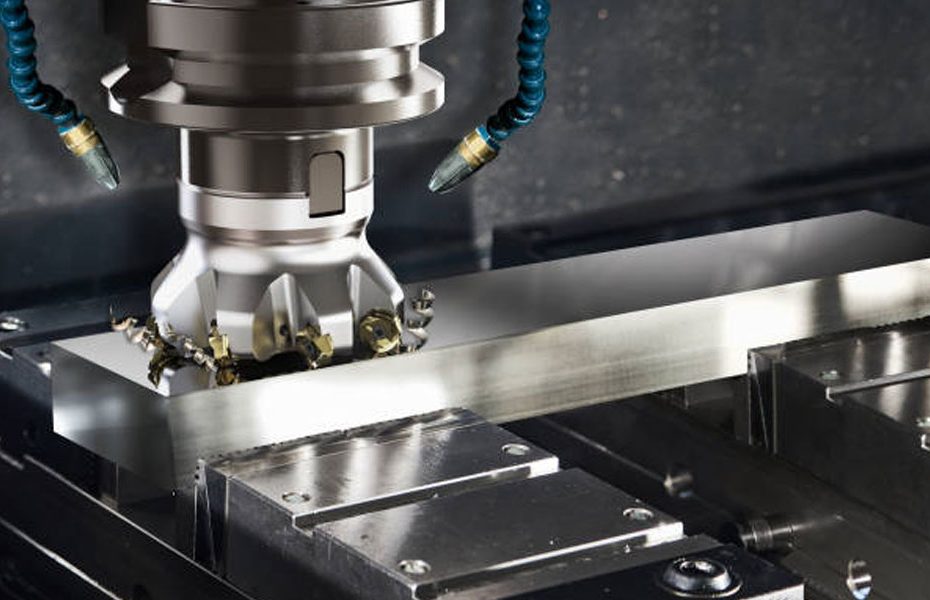CNC machining is a precise and efficient manufacturing process that relies on the right materials to create high-quality parts and products. But with so many materials to choose from, how do you know which one is right for your project? In this guide, we’ll explore the most common materials used in CNC machining, their properties, and their applications.
Common Metal Materials
-
Aluminum is a lightweight, ductile, and corrosion-resistant metal that is popular for CNC machining due to its excellent machinability and versatility. It is commonly used in industries such as aerospace, automotive, and electronics, where parts require high strength, stiffness, and thermal conductivity. Aluminum alloys are also available, which can further enhance the material’s strength and durability.
-
Steel is a strong, durable, and versatile metal that is commonly used in CNC machining due to its high tensile strength, wear resistance, and ability to withstand high temperatures. It is often used in industries such as automotive, aerospace, and construction, where high-performance parts are required. Different types of steel, such as carbon steel, stainless steel, and tool steel, offer different properties and strengths.
-
Titanium is a lightweight, strong, and corrosion-resistant metal that is often used in CNC machining for aerospace, medical, and automotive applications. It is biocompatible and can be used in medical implants and prosthetics, as well as aerospace components and structural parts. However, titanium can be difficult to machine due to its high strength and low thermal conductivity, which can cause heat buildup and tool wear.
-
Brass is a soft, ductile, and corrosion-resistant metal that is often used for decorative and ornamental parts due to its unique color and finish. It is also easy to machine and can be used in a variety of applications, including plumbing, electrical, and musical instruments. However, brass is not as strong as other metals and may not be suitable for high-stress applications.
-
Copper is a highly conductive and malleable metal that is often used in CNC machining for electrical and thermal applications. It is commonly used in industries such as electronics, telecommunications, and renewable energy, where high-performance components are required. Copper alloys are also available, which can enhance the material’s strength and durability.
-
Magnesium is a lightweight and strong metal that is often used in CNC machining for aerospace, automotive, and electronics applications. It has excellent strength-to-weight ratio and can be used to replace heavier metals, such as steel and aluminum. Magnesium alloys are also available, which can further enhance the material’s strength and corrosion resistance. However, magnesium can be difficult to machine due to its low thermal conductivity and tendency to ignite when exposed to heat and oxygen.
Common Plastic Materials
-
Acrylic, also known as PMMA or plexiglass, is a transparent plastic that is commonly used for signage, display cases, and other decorative or functional applications. It is lightweight, shatter-resistant, and has excellent optical properties, making it ideal for applications that require high visibility or clarity. Acrylic is also easy to machine and can be cut, drilled, and shaped using standard CNC tools.
-
Nylon is a tough, lightweight, and flexible plastic that is often used in CNC machining for applications that require high strength, durability, and abrasion resistance. It is commonly used in industries such as automotive, aerospace, and medical, where parts need to withstand high stress or repeated use. Nylon can also be machined to tight tolerances and is compatible with a variety of finishes and coatings.
-
Polycarbonate is a strong, impact-resistant, and transparent plastic that is commonly used in CNC machining for applications that require high strength and optical clarity. It is often used for safety glasses, windshields, and other protective applications due to its ability to withstand impacts without cracking or shattering. Polycarbonate can also be machined to tight tolerances and is compatible with a variety of finishes and coatings.
-
Polypropylene is a lightweight, flexible, and chemically-resistant plastic that is often used in CNC machining for applications that require high durability and resistance to chemicals and environmental factors. It is commonly used in industries such as packaging, automotive, and medical, where parts need to withstand exposure to harsh chemicals or UV radiation. Polypropylene can also be machined to tight tolerances and is compatible with a variety of finishes and coatings.
-
PVC, or polyvinyl chloride, is a versatile plastic that is often used in CNC machining for applications that require high chemical resistance, flexibility, and durability. It is commonly used in industries such as construction, electrical, and medical, where parts need to withstand exposure to harsh chemicals or extreme temperatures. PVC can also be machined to tight tolerances and is compatible with a variety of finishes and coatings.
-
ABS, or acrylonitrile butadiene styrene, is a strong, impact-resistant, and lightweight plastic that is often used in CNC machining for applications that require high strength and durability. It is commonly used in industries such as automotive, consumer goods, and electronics, where parts need to withstand impacts or repeated use. ABS can also be machined to tight tolerances and is compatible with a variety of finishes and coatings.
CNC machining materials are an important consideration for any manufacturing project. By understanding the properties and applications of different materials, you can select the right one for your project and create high-quality parts and products. We hope this guide has been helpful in providing an overview of CNC machining materials and their applications. If you have any questions or need further assistance, don’t hesitate to contact us.
